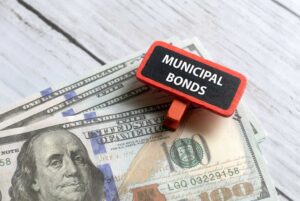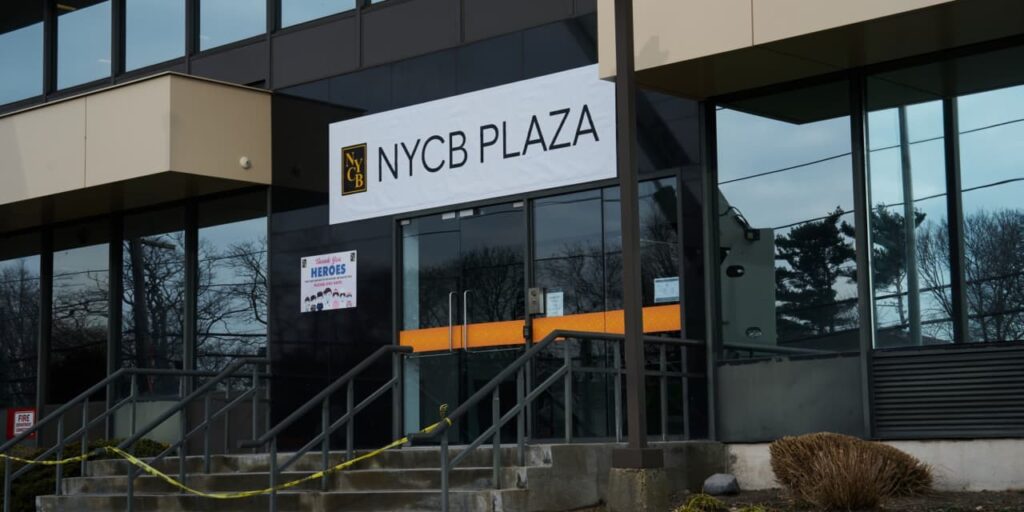A month after shaking the regional bank industry with a surprise provision for loan losses, New York Community Bancorp rattled nerves again by announcing a $2.4 billion December quarter earnings hit. At the same time, it said it identified “material weaknesses” in its loan review process and abruptly changed CEOs, causing its stock to tumble.
The bank said it needs more time to file its annual report. In a securities filing, it said that while its review of internal controls continues, it expects to report that its disclosure controls and procedures and internal control over financial reporting weren’t effective as of Dec. 31.
The $2.4 billion charge won’t affect its regulatory capital or credit agreements, the bank said, and the impairment charge didn’t result in any current cash expenditures. The weaknesses resulted from ineffective oversight, risk assessment, and monitoring activities, it said.
The burst of unpleasant news knocked
NYCB
stock down 29% as trading opened Friday, to $3.42. Coming into Friday, shares had dropped 53% this year.
Chief Executive Thomas Cangemi will step down after 27 years with the New York-based lender. His role will be assumed by Sandro DiNello, the board chairman who had already taken executive charge of the bank after its abrupt Jan. 30 announcement of a 70% cut in its dividend and a half-billion-dollar boost in its reserve for loan losses.
DiNello had headed and turned around troubled Michigan-based Flagstar Bank, before merging it a year ago with NYCB. Until Thursday, he had been portrayed as sharing command of NYCB with Cangemi.
“It is my mandate as President and CEO, alongside our Board, to continue our transformation into a larger, more diversified commercial bank,” said DiNello said in Thursday’s announcement. “While we’ve faced recent challenges, we are confident in the direction of our bank and our ability to deliver for our customers, employees and shareholders in the long-term.”
NYCB didn’t immediately respond to a request for comment.
The bank said the $2.4 billion charge stemmed from a recent assessment of the value of goodwill on its balance sheet. Bank regulators and investors pay little heed to intangible assets like goodwill, so the reassessment won’t greatly change the bank’s functioning.
About $30 million in other balance sheet changes will also be needed, said the bank, all related to NYCB’s acquisition of assets last year from the failed
Signature Bank.
Write to Bill Alpert at william.alpert@barrons.com and Liz Moyer at liz.moyer@barrons.com
Read the full article here












